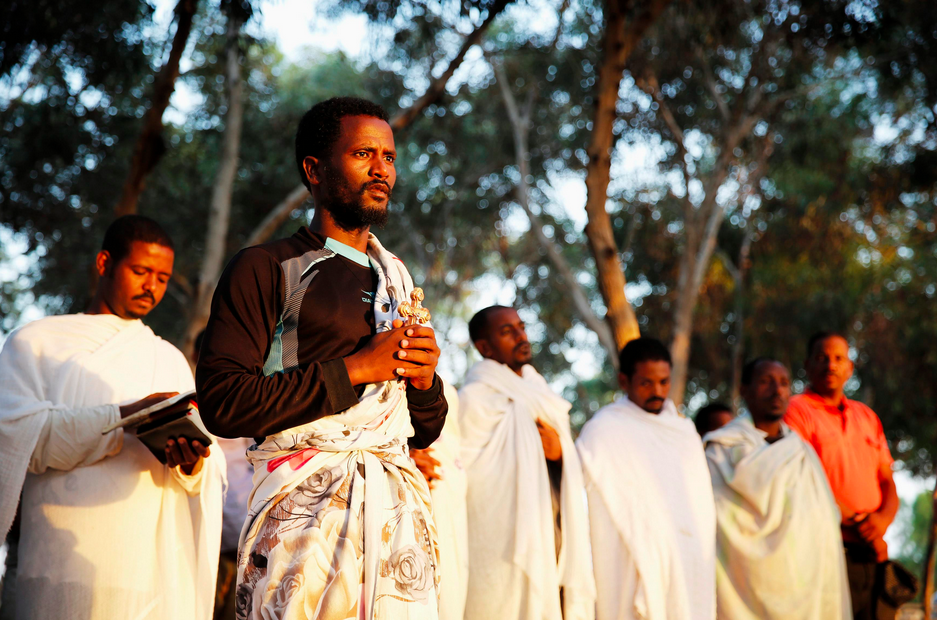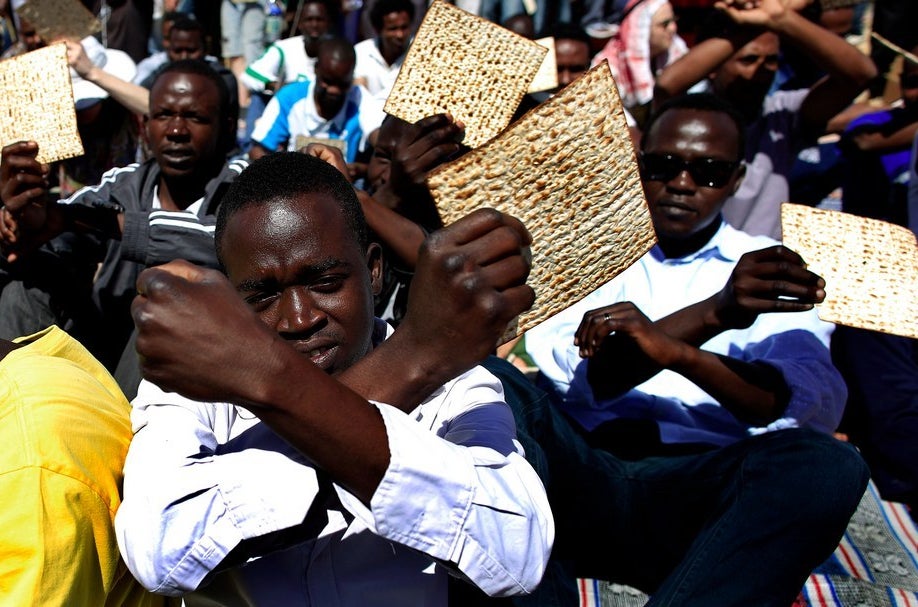Israel's High Court of Justice on Tuesday annulled the government's Anti-Infiltration Law which allowed for illegal African migrants to be detained for up to a year without trial.

The court also ordered the state to close the Holot detention facility in the Negev Desert, The Times of Israel reported.
Last year, the Knesset passed the law to prolong the detention of migrants from 60 to 90 days. There are currently 2,400 migrants from Ethiopia, Eritrea and Sudan, held at the Holot facility which opened last year.
In its decision, the court said the prolonged detention of migrants violated their rights. "Infiltrators do not lose their right to their full dignity in coming to this country by any means necessary. They do not shed their [right to] dignity when they enter custody or the holding facilities, and their right to dignity fully stands even if their arrival to the country was through illegal immigration."
The court's ruling was opposed by several right-wing members of the Knesset — the government's legislative branch — who argued that the infiltrator law was critical in preventing the swelling numbers of African migrants from illegally entering Israel.
From The Times of Israel:
Interior Minister Gideon Sa'ar said he could "not accept the verdict of the Supreme Court," which, if implemented, would mean "we won't have a Jewish democratic state because our borders will be overrun… with illegal infiltrators." He said the court had "made a mistake" and that the Knesset would now have to pass legislation preventing the Supreme Court from intervening on the issue.
Human rights organizations have pressed Israel to stop "unlawfully coercing" thousands of asylum seekers into leaving the country and returning home at the risk of facing "severe abuse."

Since 2006, thousands of Eritreans and Sudanese have arrived in Israel to escape human rights abuses in their countries. In 2013, the Knesset passed the infiltrator law to crack down on illegal migrants which they felt threatened the security of the state and its residents. Israel deported nearly 4,000 illegal African immigrants from a total of what it said were 60,000 migrants last year. It also opened the Holot center to detain the illegal immigrants before deporting them.
The housing minister from the Orthodox-nationalist Jewish Home party, Uri Ariel, said the court "broke a new record today on turning its back on the state of Israel." He said the ruling "would harm Israel's ability to protect itself from the phenomenon of infiltration." Another member of the Jewish Home party, said "Today the lives of hundreds of thousands of Israelis were destroyed."
Humans rights organizations, including Association of Civil Rights in Israel and Amnesty International-Israel said in statement that the court ruling ensured that government policy towards asylum seekers could "not be based on mass detention of innocent people."
"We call on the government: This is the time to act for the mutual benefit of residents of southern Tel Aviv and asylum-seekers - by investing money in improving the infrastructure, welfare and health services in neighborhoods where many asylum-seekers reside, and by working to decrease the density of population in those areas by granting asylum-seekers work permits and encouraging Israelis to employ them," the statement said.
"Lots of people here have mental problems," a 21-year-old Eritrean detainee at Holot told Human Rights Watch in January.


"Life here in Holot is the same as in [Israel's] Saharonim [detention center], where I was detained for 14 months before," the detainee said. "Lots of people here have mental problems because they were also detained for so long. I am also afraid of getting those problems. I have been in prison for so long."
Humans rights organizations have documented the abuse of African migrants after they are deported to their countries by Israel or when they flee Israel fearing indefinite detention. According to the Human Rights Watch, three Sudanese who left Israel for Sudan because of the government's crackdown, said they were tortured, put in solitary confinement and charged with treason by their own country.
